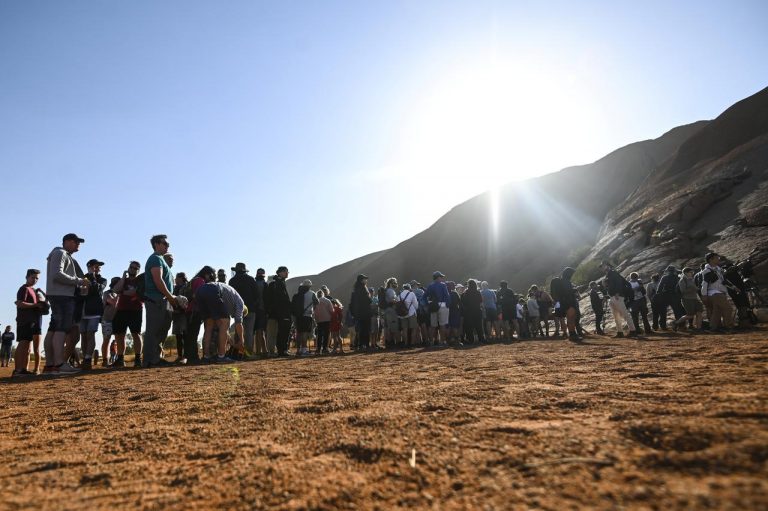
Hundreds of tourists clambered up Australia’s Uluru on Friday, the day before a permanent ban on climbing the sacred rock takes effect following a decades-long fight by indigenous people to close the trek.
The UNESCO World Heritage-listed 348-metre (1,142-ft) monolith, formerly known as Ayers Rock, is a top tourist draw in Australia despite its remote desert location near Alice Springs in the Northern Territory.
Authorities opened the climb mid-morning amid clear skies, after blustery conditions delayed early trekkers.
While most visitors do not climb Uluru’s steep, red-ochre flanks, the impending Oct. 26 ban has triggered an upsurge in people taking a final opportunity to make the trek. Nearly 400,000 visitors flocked to the Australian landmark in the year to end-June, government data shows.
The Anangu people, the traditional owners of Uluru, have called for the climb to be closed since 1985, when the park was returned to indigenous control. The Anangu say Uluru has deep spiritual significance as a route their ancestors took.
“You want to respect the cultural side of things, but still you want to have it as a challenge to get up the rock,” said Sonita Vinecombe, a visitor from the Australian city of Adelaide, who lined up early in the morning.
American tourist Kathleen Kostroski said she would not climb because it would be “sacrilegious” to do so.
“It’s a violation against mother nature, first of all and secondly, against the aboriginal indigenous people here,” she said.
Dozens of people have died while climbing Uluru, from falls and dehydration in the hot, dry conditions. Summer temperatures often top 40 degrees Celsius (104 degrees Fahrenheit).
The closure was announced two years ago when fewer than 20 percent of visitors were making the climb.
To commemorate the climbing ban the park will conduct public celebrations over the weekend.
“It is an extremely important place, not a playground or theme park like Disneyland,” Anangu senior traditional owner Sammy Wilson said in a statement.
“We welcome tourists here. Closing the climb is not something to feel upset about, but a cause for celebration.”





